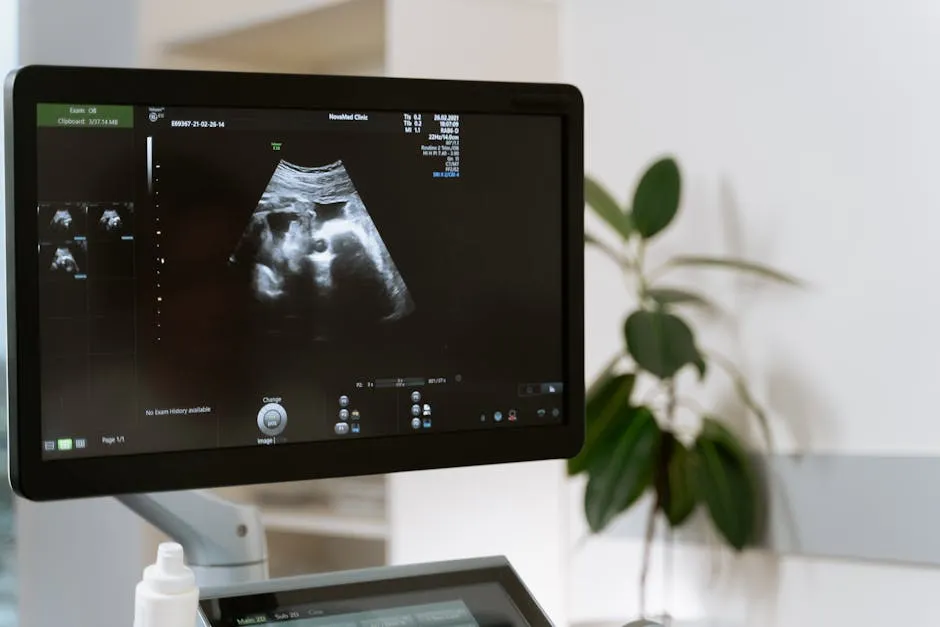
Why Is My Pregnant Abdomen Sometimes Hard and Sometimes Soft During the Third Trimester?
Introduction
Pregnancy transforms your body in many ways. These changes can be surprising, especially when it comes to your abdomen. Many expectant mothers notice their bellies feel hard one moment and soft the next. This experience is common but can raise questions. In this article, we’ll explain why your abdomen feels this way, particularly during the third trimester. Speaking of transformations, a good Pregnancy Pillow can work wonders for your comfort during those sleepless nights. It’s like a hug for your body, helping you get the best rest possible while you navigate the wild world of pregnancy.Summary and Overview
Varying firmness in the abdomen during pregnancy is a normal phenomenon. Understanding these changes can help ease concerns for expectant mothers. Several factors influence abdominal firmness, including fetal position, muscle stretching, and contractions. In the following sections, we’ll discuss the causes behind these sensations, when to be concerned, and some helpful management tips. And while you’re at it, don’t forget about those Prenatal Vitamins. They’re essential for your baby’s development, ensuring you both get the nutrients needed during this critical time.
Understanding the Normalcy of Abdominal Hardness and Softness
Causes of Hardness and Softness
During pregnancy, your body undergoes remarkable anatomical changes. As your uterus expands, it pushes against your abdominal wall. This pressure can lead to a hard feeling in your belly. In contrast, when the uterus relaxes, your abdomen may feel soft. Amniotic fluid also plays a role. It cushions your baby and can affect how firm your belly feels. As your baby moves, their position can create different sensations of hardness. Sometimes, you might feel a firm area where the baby’s back or limbs press against your abdomen. Fetal activity significantly influences these changes. As your little one kicks and rolls, you may notice shifts from hard to soft throughout the day. It’s a normal part of this beautiful journey.The Role of Braxton Hicks Contractions
Braxton Hicks contractions are another reason your abdomen feels hard. Often called “practice contractions,” they start around the second trimester and can increase in frequency during the third trimester. These contractions are your body’s way of preparing for labor. Typically, Braxton Hicks are irregular and can last from 30 seconds to two minutes. They might occur after physical activity or even after a long day. Unlike real labor contractions, which become progressively stronger, Braxton Hicks usually ease with changes in position or relaxation. It’s essential to differentiate between Braxton Hicks and actual labor contractions. Real labor contractions tend to be consistent, painful, and gradually increase in intensity. If you experience any concerning symptoms, always consult your healthcare provider for guidance.
Changes Throughout the Third Trimester
What to Expect Physically
As you enter the third trimester, your body undergoes significant changes. The most noticeable transformation is the expansion of your uterus. By now, your uterus has grown to accommodate your baby, which can lead to a firm feeling in your abdomen. This growth puts increased pressure on surrounding organs, including your bladder and intestines. Additionally, the position of your baby can greatly affect how your abdomen feels. As your little one shifts and moves, different areas of your belly might feel hard or soft. It’s common to notice a firm spot where the baby’s back or limbs press against your abdomen. These physical changes are completely normal and part of your unique pregnancy journey.
Understanding the changes in your abdomen during the third trimester is crucial for expectant mothers. why is my pregnant abdomen sometimes hard and sometimes soft during the third trimester
Common Sensations: Tightness and Heaviness
Tightness and heaviness in your abdomen are common sensations during this stage. These feelings often arise from muscle stretching as your belly grows. Your abdominal muscles work hard to support the expanding uterus, which can lead to tightness. Fetal movements also contribute to these sensations. When your baby kicks or shifts, you might feel a sudden tightness in your belly. Hormonal fluctuations can play a role too, leading to additional feelings of heaviness. It’s important to stay aware of these sensations, as they are usually normal. However, if they become uncomfortable or troubling, don’t hesitate to consult your healthcare provider. And to help ease some of that tightness, consider investing in a Maternity Support Belt. It provides the much-needed support to your belly and back, making those hard days a little easier.
When to Be Concerned
Signs That Warrant Medical Attention
While many sensations are typical during pregnancy, some symptoms may require medical attention. Severe pain or persistent discomfort in your abdomen can indicate a problem. It’s important to differentiate between normal sensations and those that may signal complications. If you’re feeling concerned about your baby’s heartbeat, a Fetal Heart Rate Monitor can be a reassuring tool. It allows you to listen to your baby’s heartbeat and provides peace of mind during those anxious moments. Signs of preterm labor, such as regular contractions before 37 weeks, should be taken seriously. If you notice a significant decrease in fetal movement, it may indicate that your baby is in distress. Always trust your instincts; if something feels off, reach out to your healthcare provider for guidance. Your health and your baby’s well-being are the top priority.
Consultation Recommendations
Consulting your healthcare provider during pregnancy is crucial. Regular check-ups help monitor your health and your baby’s development. If you notice any unusual changes, don’t hesitate to reach out. Keeping a symptom diary can be very beneficial. Write down when your abdomen feels hard or soft and any accompanying symptoms. This information can help your healthcare provider understand your situation better. Also, don’t underestimate the importance of prenatal visits. These appointments allow your doctor to assess your health and address any concerns. They provide a platform to discuss your experiences and ask questions. Remember, it’s vital to communicate openly with your provider. If you feel something is off, trust your instincts and seek advice. Your well-being and that of your baby are paramount. Keeping track of your symptoms and maintaining regular check-ups can lead to a smoother pregnancy journey.
Tips for Managing Abdominal Firmness
Managing tightness and discomfort in your abdomen can be straightforward with some practical strategies. Staying hydrated is vital. Drinking plenty of water can reduce the likelihood of Braxton Hicks contractions. Aim for at least eight glasses a day. Consider using a stylish Maternity Clothes that are both comfortable and fashionable. Keeping your wardrobe fresh can boost your mood and make you feel more confident as your body changes. Position changes can also bring relief. If you’re sitting for a long time, try standing or walking around. This simple change can ease pressure on your abdomen. Gentle exercise, like walking or prenatal yoga, can help too. These activities promote relaxation and improve circulation.
Importance of Self-Care
Self-care is essential during pregnancy, especially for managing discomfort. Taking time for yourself helps maintain your mental and physical well-being. Mindfulness practices, such as meditation, can reduce stress. A calm mind contributes to a healthier pregnancy. You might also enjoy a relaxing Relaxation Music CD to help you unwind after a long day. It’s like a mini-vacation for your mind! Consider adding prenatal yoga to your routine. It promotes flexibility and relaxation, benefiting both you and your baby. Focus on breathing and gentle movements. These practices can help ease tension in your abdomen and improve your overall comfort.

Conclusion
Experiencing a hard or soft abdomen during pregnancy is quite common. These changes reflect your body’s natural adaptations as it accommodates your growing baby. Variations in firmness can result from factors like fetal movements, muscle stretching, and Braxton Hicks contractions. It’s essential for expectant mothers to remain informed about these sensations. If you have concerns, always reach out to your healthcare provider. Open communication helps you stay aware of your body’s changes. While these sensations are generally normal, being attuned to your body can ensure a healthy pregnancy for both you and your baby. Trust your instincts and seek guidance whenever necessary.
FAQs
Is it normal for my pregnant belly to feel hard sometimes and soft at other times?
Yes, it’s completely normal for your pregnant belly to change in firmness. These variations usually occur due to factors like the baby’s position, muscle stretching, or Braxton Hicks contractions. Expectant mothers often experience these fluctuations, especially in the later stages of pregnancy.
What are Braxton Hicks contractions and when do they occur?
Braxton Hicks contractions are practice contractions that typically begin in the second trimester. They help prepare your body for labor. These contractions can feel like a tightening or hardening of the belly and usually last from 30 seconds to two minutes. They are generally irregular and lessen with rest or position changes.
When should I be concerned about abdominal hardness during pregnancy?
You should consult your healthcare provider if you notice persistent abdominal hardness accompanied by severe pain, heavy bleeding, or a significant decrease in fetal movement. Regular contractions before 37 weeks can also be concerning and warrant immediate medical attention.
How can I relieve discomfort from a hard abdomen during pregnancy?
To ease discomfort from a hard abdomen, stay hydrated by drinking plenty of water. Changing positions can also help; try moving around or lying on your side. Gentle exercises, warm baths, and relaxation techniques can further alleviate tightness. Listen to your body and prioritize rest when needed.
What does it mean if my belly feels hard on one side?
If your belly feels hard on one side, it often relates to your baby’s position. As your baby grows, they can press against your abdomen. This pressure can create a firm sensation where their back or limbs touch your belly. It’s a normal occurrence, especially in the third trimester. However, if the hardness is persistent or accompanied by pain, it’s wise to consult your healthcare provider for further evaluation.
Can dehydration cause my pregnant belly to feel hard?
Yes, dehydration can lead to a hard abdomen during pregnancy. When you’re dehydrated, your body may respond with Braxton Hicks contractions, which can make your belly feel tight. Staying hydrated is crucial for your overall well-being and can help reduce these uncomfortable sensations. Aim for at least eight glasses of water daily to keep your body functioning optimally.
What should I do if I experience severe abdominal pain during pregnancy?
If you experience severe abdominal pain during pregnancy, seek medical help immediately. Pain that is intense or persistent could signal issues such as preterm labor or complications. Additionally, watch for symptoms like heavy bleeding, severe back pain, or significant changes in fetal movement. Always trust your instincts—if something feels off, contacting your healthcare provider is essential for your safety and your baby’s health.
All images from Pexels




